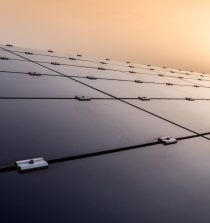By Nasi Hako
Nelisiwe Magubane, Chairperson for Matleng Energy Solutions, in an exclusive Women in Energy interview with ESI Africa Magazine: Nelisiwe Magubane was appointed to the AngloGold Ashanti board to engage on ESG (Environmental, Sustainability and Governance) issues and continued giving presentations about energy issues at conferences. Excepts
Since your involvement in the ESI Africa Women in Energy feature, what have been the highlights working in the energy sector?
At this point in time, there is currently a big push for listed companies to make sure that they deal with sustainability issues, of which energy is a big part. I was lucky enough to participate in this regard and, in fact, I sit on the Social, Ethics and Sustainability (SES) committee as part of their audit committee, which looks at the company as a whole and its activities with regard to ESG. This has been quite a big step for me and it made a huge impact.
I was also invited to the Presidential Climate Commission, whereby I made a presentation on energy issues. I was also invited by the AMEU (Association of Municipal Electricity Utilities SA) to speak about the fourth industrial revolution and how it will impact the energy sector. Effectively, it has been a very interesting time for me and I think I’ve grown a lot since then.
Let’s not disabuse ourselves by saying that renewable energy is going to solve all our problems.
What developments in the energy sector are you actively participating in?
I am currently taking advantage of listed companies’ commitments and making sure that we deploy renewable energy by working with companies that focus on low-carbon energy issues.

As the Chair of the Strategic Fuel Fund, which is a government-owned company that seeks to ensure that we have adequate strategic stocks as a country, we ensure that we never have to run out of fuel. As the Strategic Fuel Fund, we are also looking at alternatives to fossil fuels and ensuring that we diversify our resources as a country. More than anything, we want to ensure that there is energy security for the country.
We have also been looking at opportunities outside the country to make sure that we look at low-carbon energy resources. I am of the view that renewable energy and low-carbon energy resources will become a good mix. However, let’s not disabuse ourselves by saying that renewable energy is going to solve all our problems. For example, I live in Pretoria and, right now, the sun is not shining. If the sun is not shining, solar energy is compromised.
More than anything, we want to ensure that there is energy security for the country.
If you were an energy minister, what would be your first decree? And why?
The first thing I would do is make sure that the government and private sector work together to amass their resources. The government’s job is to create an enabling environment for the energy sector and that enabling environment should be such that the private sector should be enticed to participate.
I designed the Renewable Energy Independent Power Producer Programme (REIPPPP) with the view that government does not have enough resources to invest in the energy sector. So what is it that the energy sector needs? To answer this, I visited five West and Eastern countries and asked, ‘What is it that you did that enabled the private sector to operate?’
That was the first step. It was a way to ensure the private sector gets moving.
If you recall, the first solar projects were about R2/kWh. Today, they are 34c/kWh, which tells you that people are comfortable enough that this is the right place to invest. Government should make sure to create an environment for private sector participation and listen to what it is that they require.
I would like women in Africa – not just South Africa – to be able to be in charge of the energy sector and make decisions on how we can ensure that we empower ourselves.
Why are you so passionate about energy issues?
Growing up, I used to study with a candle, I used to fetch water in the river and I used to cook using firewood – and for you to be able to cook using firewood, you have to go and fetch it! So, effectively I would like women in Africa – not just South Africa – to be able to be in charge of the energy sector and make decisions on how we can ensure that we empower ourselves.
More than that, if you look at the energy companies, the three top layers of the energy sector are men and they decide how the energy sector will be developed, yet we are the ones who are supposed to oversee how energy is deployed. Recently in Germiston, four human beings died – all females – because there was an unattended primer stove and they were burned beyond recognition. In 2022, that should not be happening.
Source: ESI Afrca









Thanks for sharing. I read many of your blog posts, cool, your blog is very good.